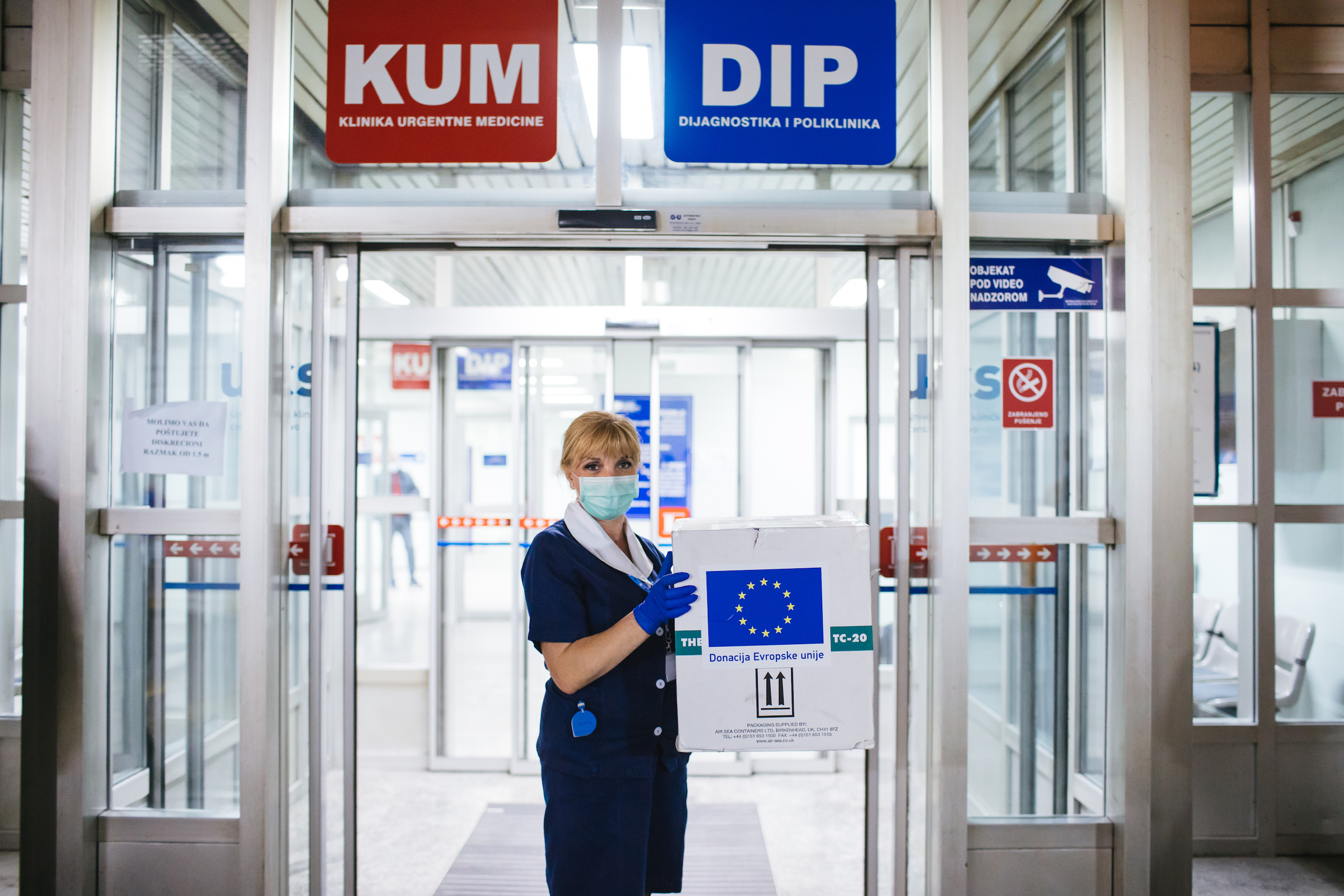
EU donates 40,000 high quality control material for coronavirus tests to Bosnia and Herzegovina
The European Union delivered today 40,000 high quality control tests for coronavirus to the Clinical Centre of the University of Sarajevo and RS Public Health Institute in Banja Luka. The […]
The European Union delivered today 40,000 high quality control tests for coronavirus to the Clinical Centre of the University of Sarajevo and RS Public Health Institute in Banja Luka. The control material aims at calibration of COVID-19 testing equipment to increase the reliability of testing.
The material is currently being dispatched across the EU. Following the requests for assistance, the EU also donated it to Bosnia and Herzegovina and other Western Balkans partners.
EU Ambassador to BiH Johann Sattler underlined the importance of cooperation and solidarity in these difficult times for everybody, especially front-line medical workers: “These tests were developed by European Union scientists at a Joint Research Facility in Belgium. I am very happy that we could secure 40,000 of those tests for Bosnia and Herzegovina. This is again proof of EU solidarity. Let me also use this opportunity to thank all those on the front line, the doctors, nurses and other medical workers for the fantastic work they are doing in this country. We owe them a big thank you”, said Sattler.
General Director of the Clinical Centre of the University of Sarajevo Professor Dr Sebija Izetbegovic stated: “We are grateful to the EU for this donation, which will be used in the testing process. The Clinical Centre of the University of Sarajevo has done 7,415 tests so far and we are very pleased with the results, which were tested at the Berlin Laboratory and as such have been accepted by the supervisors“.
The control material was produced by the European Union scientists in the Joint Research Centre (JRC) in Belgium.
The European Union has allocated €80.5 million in grant funds to assist Bosnia and Herzegovina in the fight against COVID-19, out of which a total of €7 million euro is being disbursed for emergency medical needs.
